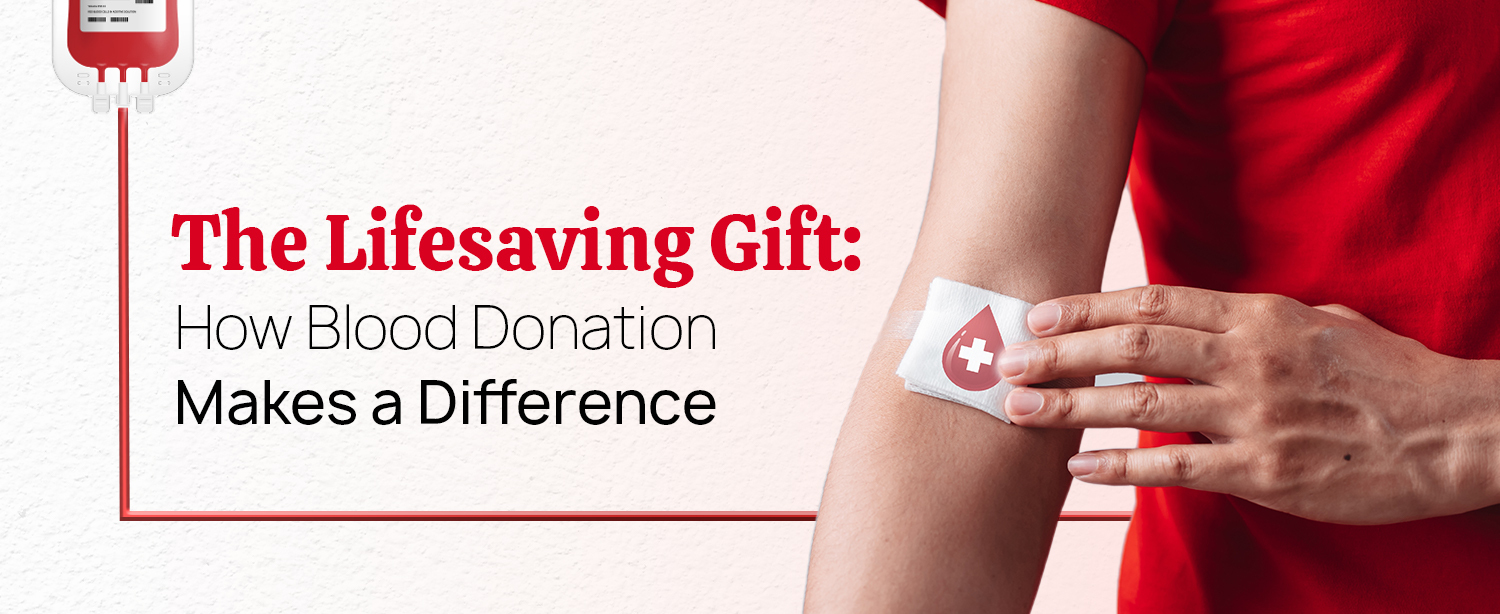Each year, World Blood Donor Day is observed in June to raise awareness about the critical importance of blood donations and to thank voluntary donors for their irreplaceable contribution. This day provides a vital opportunity to promote the practice of blood donation and educate the public on its profound societal impacts. Let us explore who can donate, why blood donation is crucial, the specific challenges faced in India, the safety of the procedure, and some lesser-known facts about blood donation.
Table of Contents
Who Can Donate Blood?
Blood donation is a simple act of kindness that can save lives, but not everyone is eligible to donate. Ideal candidates for blood donation must meet specific criteria to ensure the safety and health of both the donor and the recipient. Generally, donors should be:
- Between 18 and 65 years old
- Weighing at least 50 kg
- In good health and free from any transmissible diseases
- Not currently taking certain medications, such as antibiotics or anticoagulants
It is important to consult your doctor to determine individual eligibility if you have any existing health condition.
Why is Blood Donation useful?
Blood donation plays a pivotal role in the healthcare system. Every unit of blood can save up to three lives, as it can be separated into various components—red cells, plasma, and platelets—each used to treat different medical conditions. For instance, trauma victims, surgery patients, individuals with anemia, and cancer patients regularly require blood transfusions. Moreover, maintaining an adequate blood supply is crucial for emergency preparedness, ensuring that hospitals are equipped to handle unexpected situations.
The Gap in India
In India, the demand for blood consistently outstrips supply. Despite having a large population, the percentage of active blood donors is relatively low, resulting in a significant gap that can jeopardize lives, particularly in cases of emergencies, genetic blood disorders and for patients with chronic conditions. Sadly, India sees a mortality of up to 12,000 patients each day due to delayed access to blood transfusions.Cultural misconceptions, lack of awareness, and fears about the safety of donation procedures contribute to this shortfall. Addressing these issues through education and awareness campaigns is essential to increase donor participation rates.
Ensuring a Safe Procedure
Blood donation is a highly regulated and safe procedure. Health professionals screen all donors to minimize any health risks, and sterile, single-use equipment is employed to eliminate the risk of infections. Donors are advised to rest briefly after donating and are often provided with snacks and fluids to help them recover quickly. The whole process usually takes less than an hour, and donors leave with the satisfaction of having potentially saved lives.
Essential Facts about Blood Donation
- Universal Donors and Recipients: Individuals with O-negative blood are considered universal donors, as their blood can be transfused to almost any patient. Conversely, those with AB-positive blood are universal recipients.
- Health Benefits for Donors: Regular blood donation can help in iron regulation in the body, potentially reducing the risk of heart disease.
- Rapid Regeneration: The human body is capable of replenishing the blood volume donated within 48 hours, and red blood cells are completely replaced within one to two months.
- Limitations on Frequency: Men can donate blood once every three months, while women can donate every four months, ensuring that the donor remains healthy and the blood supply is sustainable.
Conclusion
Blood donation is not just a noble act; it’s a crucial one that supports the essence of our healthcare system. It embodies the true spirit of giving back to the society by directly contributing to saving lives. We encourage everyone eligible to consider becoming a donor. The process is safe, relatively quick, and culminates in immense personal satisfaction, knowing that you are part of a life-saving chain of donors. Reach out to our Blood Bank for further assistance at the link below: https://www.kokilabenhospital.com/departments/clinicaldepartments/transfusionmedicine.html


